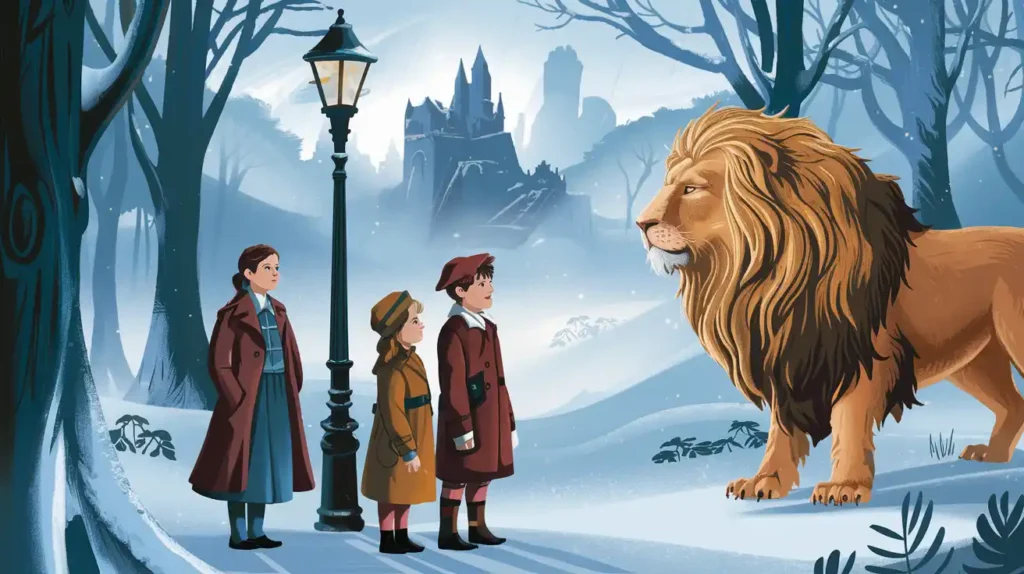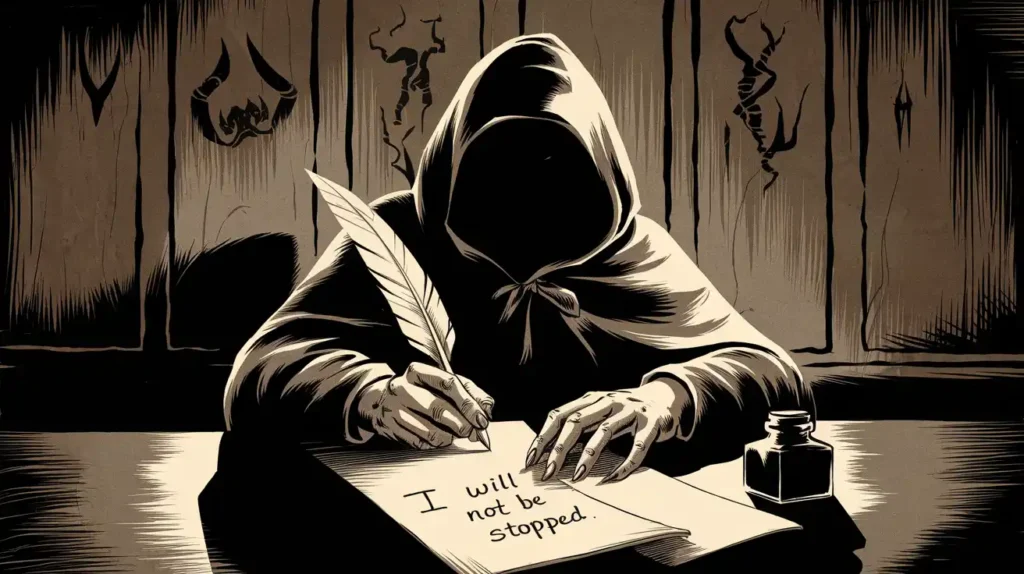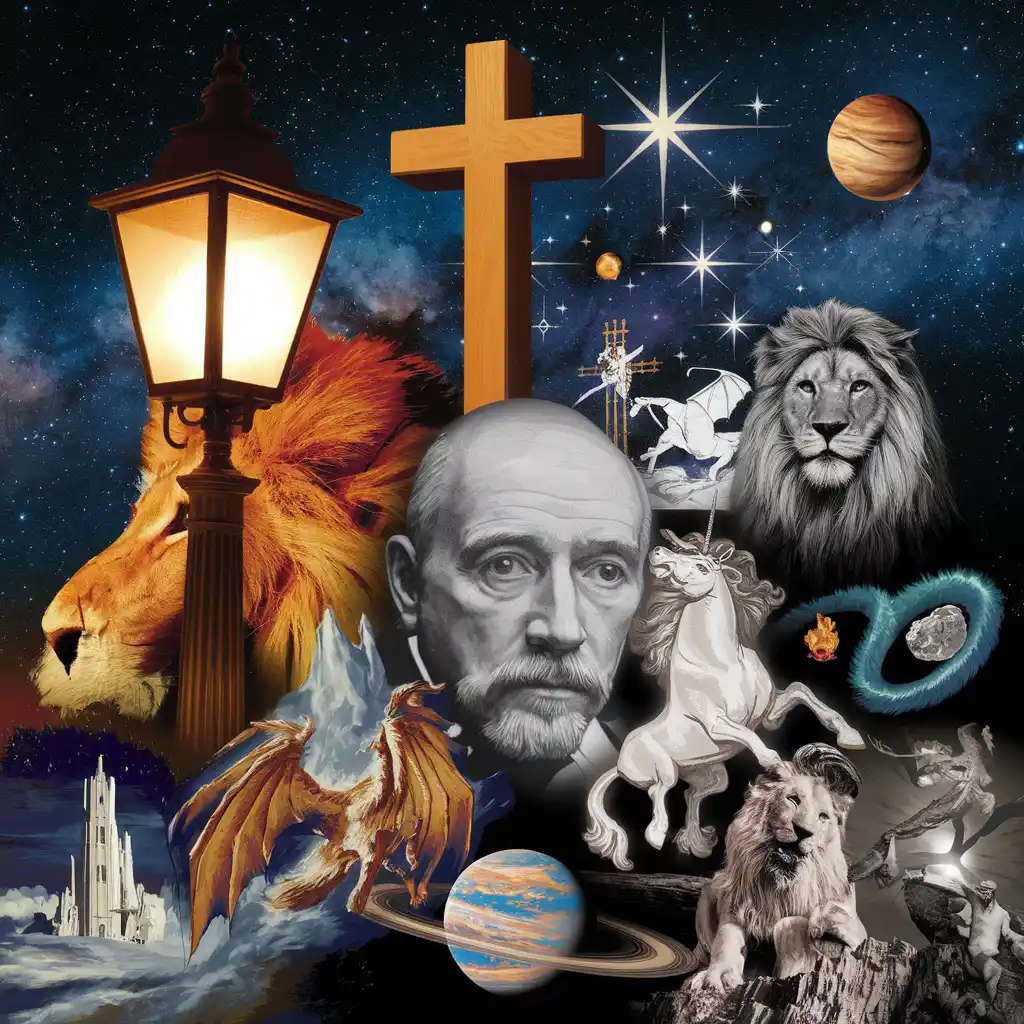C.S. Lewis remains one of the greatest literary thinkers in the 20th century. His works range in form from fiction and fantasy to Christian apologetics; they continue testing time and are a wonder to the readers of all generations. As a result, this paper will dissect the vast array of works done by C.S. Lewis, bringing themes, influence, and an overall legacy. This guide will assist you in exploring the rich world that CS Lewis Books has created, regardless of your familiarity with his writings.
The Chronicles of Narnia: A Journey into Fantasy

Perhaps the most famous of all C.S. Lewis books, the Chronicles of Narnia series have held spellbound readers both young and old with its imaginative world and deep allegories. The immense seven works easily take one through the magical lands of Narnia, where beasts can talk, magic really works, and the struggle between good and evil is hard.
Each, from The Lion, the Witch, and the Wardrobe to The Last Battle, has a stand-alone story of its own, but the sum effect of the series builds up into the message of Narnia. It touches on themes of sacrifice, redemption, and the struggle of good versus evil, including small snippets of man’s Christian theology in a subtle but powerful manner.
The Chronicles of Narnia provides so much for any book club to discuss-from its allegorical connections with Christian beliefs to its rich character development and imaginative world-building. All the endless book club ideas for discussing Narnia only place it as an eternal favorite for group reads.
Mere Christianity: The Core of Lewis’s Apologetics

Mere Christianity is arguably the most important work in C.S. Lewis’s canon of Christian apologetics. A set of radio talks produced during World War II, it lays out a case for Christianity by Lewis that is clear, logical, and accessible. The book falls into four sections that specifically cover important features of Christian belief, from the law of human nature through to the nature of God.
What singles out Mere Christianity among other works by C.S. Lewis is the fact that it equally appeals to both believers and skeptics. Lewis does not adopt an aggressively dogmatic approach in his work. His approach is thoughtful and reasoned, and every reader will appreciate an investigation into the bases of belief that Christianity engenders.
To those who want to make some book club ideas on Mere Christianity, a suggested discussion could be logically based arguments, relevance to modern-day faith, and its impact on personal belief systems and broader theological discourse alike.
The Screwtape Letters: An Appealing Satire

The Screwtape Letters is a book by Lewis, written in such an unusual style and manner that classifies it among his best works. This book consists of a set of letters from an older devil, Screwtape, to his nephew, Wormwood, the junior devil-tempter who is supposed to instruct on how to turn a human “patient” away from God toward damnation.
This is a satire with profound insight into human nature, temptation, and spiritual battles going on in everyday life. This book is extremely funny and wistful, possessing an unerring sense of theological acumen, combined with a very quick wit.
The Screwtape Letters, on the other hand, offers much material for discussion when in a book club-centered setup: slick satire on Christian theology, a classic portrayal of the devil’s perspective, and its reflection on spirituality. This aesthetic of the book, with dark humor and a clever narrative style, makes for a truly interesting book to discuss in groups.
The Great Divorce: A Dream of Heaven and Hell

An intensely theological book, The Great Divorce is one more of Lewis’s voluminous works presented in the form of a dream or an allegory. Herein, he tells of a bunch of people who take a bus ride from hell to the outskirts of heaven, where there is the freedom to stay or return to hell. Through this story, Lewis delves deep into themes of grace, redemption, and human free will on the way of good and evil.
This book excels in illustrative imagination in the afterlife and deepens with philosophical questions into the nature of heaven and hell. The Great Divorce is one interestingly open-ended book that questions every reader to re-think their belief and choice.
The Great Divorce offers many opportunities for lively discussion. One could arguably engage in discussions surrounding the symbolism within the book, interpretations of its depiction of the afterlife, and the relevance of such Buddhist philosophy towards personal and group spiritual quests in a book club. The Mad Honey book aesthetic of The Great Divorce can also become a conversation point, setting the rest of Lewis’s works against the darker, more thoughtful tone of this book.
The Space Trilogy: Science Fiction Meets Theology
Though not nearly as well-known, C.S. Lewis’s Space Trilogy represents a fantastical blend of science fiction and Christian allegory. Comprising Out of the Silent Planet, Perelandra, and That Hideous Strength, the trilogy puts Dr. Elwin Ransom-a philologist-against interplanetary adventures where he encounters extraterrestrial species, each symbolizing some portion of the Christian narrative.
The trilogy tends to capture themes in the nature of evil, corruption of power, and tension between spiritual and material realities. It is a different entry into the C.S. Lewis world of books, more speculative regarding theological questions.
The Space Trilogy is multi-faceted in its ability to provide various talking points, which book clubs may use in the study of the book. This may be through detailing the nature of evil, celebrating otherworldly settings and their spiritual implications, or using science fiction as a genre to reflect deep theological musings and, in doing so, engaging readers with ease.
Till We Have Faces: A Myth Retold, Faithfully

Many scholars consider Till We Have Faces the most mature and complex work of C.S. Lewis’s outputs. It is a retelling of the myth of Cupid and Psyche, and that book deals with the themes of love, jealousness, and faith. The story happens from the perspective of Psyche’s sister, Orual. It is a book that penetrates the human psyche to deliberate on love, the relation between gods and humans, and basically the search for the truth.
This novel is remarkable in the C.S. Lewis ensembles by the depth of its character development and the philosophical exploration of myth and faith. It was a book that really challenged one to think seriously about the nature of love and the human condition.
About the book club: Till We Have Faces is full of discussion areas, from the use of myth to investigate complex theological questions, to the depiction of love and sacrifice, to the deeply personal nature of the telling. Thus, the Mad Honey book club ideas could proceed from the above-mentioned themes to intertextual and autobiographical aspects of the novel.
Conclusion

His works remain timeless, living from generation to generation in giving deep insight into the human condition, spirituality, and the nature of good and evil. Be it the fantastic world of Narnia, the logical arguments posited within Mere Christianity, or the imaginative landscapes of his Space Trilogy, Lewis’ books will offer readers-especially those leading or participating in book clubs-a great deal of food for thought and/or discussion.
